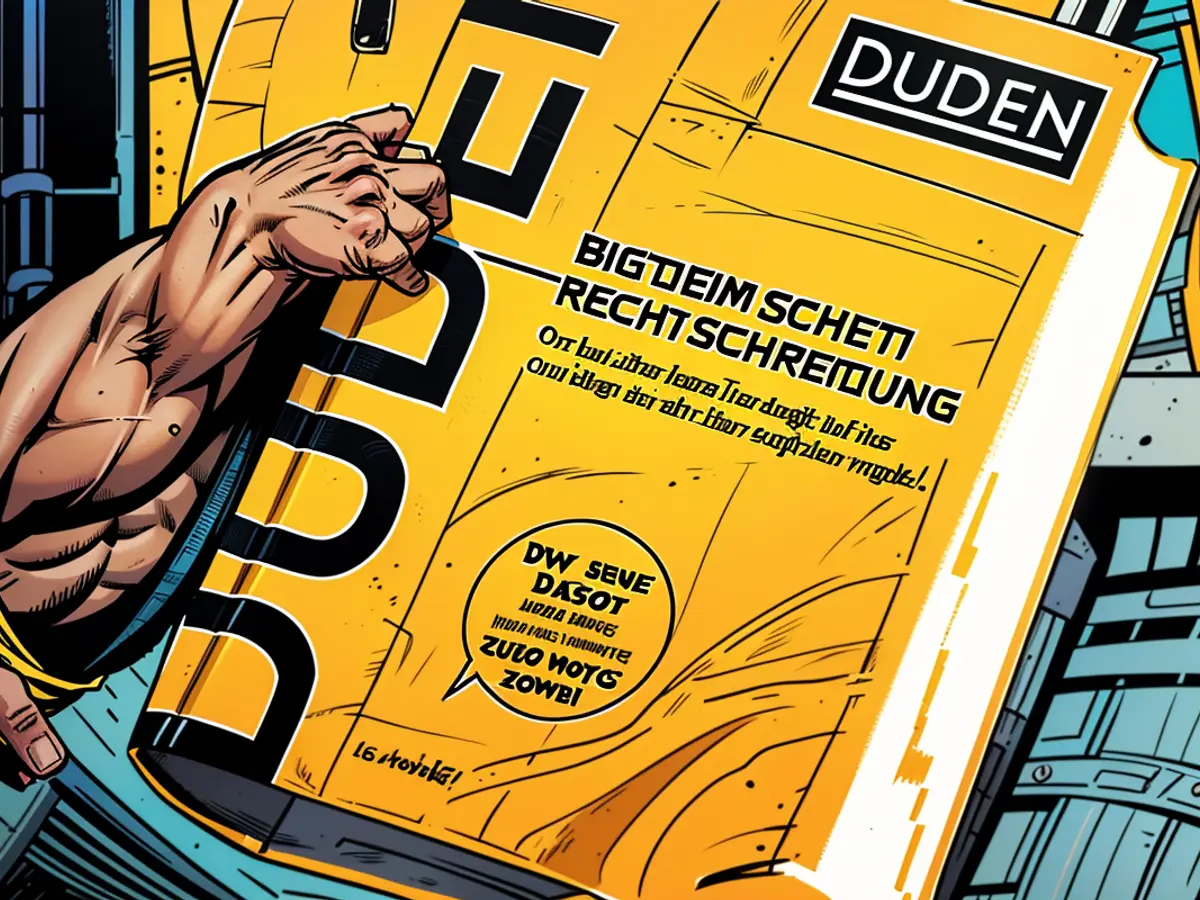- stop utilizing such language in that manner anymore.
Gained some pounds once more: The recent update to Duden added 3,000 words, such as "balcony power plant", "Germany ticket", "ChatGPT", "granola", "climate glue", and even "Ukraine conflict".
"Duden serves as a reflection of the times. These words give us an insight into the past three to four years," commented chief editor Kathrin Kunkel-Razum of the German Press Agency. On Tuesday, after a four-year hiatus, the 29th version of the most widely recognized German spelling guide will be released.
Words like "plant-based meat" or "severe weather incident" reflect the times
With 151,000 entries, the print version is now more comprehensive than ever before. According to Kunkel-Razum, the major linguistic shifts of the past few years can be boiled down to three categories: crisis, war, and cuisine.
For instance, the "COVID-19 pandemic" has earned a new entry - alongside "rapid antigen test" or even "COVID-19 denier". Words like "severe weather incident", "air defense system", "fuel shortage situation", and "relief package" remind us of crises in different sectors. Changing food habits are mirrored in words like "plant-based meat", "vegetable bag", "sesame paste", or even "contact grill".
Duden removes seldom-used words like "refrigerator" and "UMTS phone"
Since its inception, the Duden editorial team regularly evaluates and deletes words that are rarely used. In this edition, 300 words have been axed, as per Kunkel-Razum. Some examples of these ousted terms are "frigidaire" (refrigerator), "UMTS phone", and the East German term "rationalizer" for an employee with rationalization tasks. Also removed are spellings that are no longer acceptable, such as "tuna fish" and "spaghetti".
"It's more challenging to eliminate words than to add them," mentioned the linguist. Proving that a word is rarely used is harder than demonstrating that it's frequently used. And sometimes, deletions are reversed. The term "hackney carriage" (playfully for a shopping cart) was absent from the past Duden and has since regained its place. "We received complaints that the word had been eliminated," explained Kunkel-Razum.
Comma before an extended infinitive is mandatory once again
Once considered imperative, Duden lost its authority after the 1996 spelling reform. The Council for German Orthography, which publishes the "official rulebook", now holds that title. This rulebook consists of a rule section and a word list. Works like Duden make these regulations usable in everyday life.
According to Kunkel-Razum, the new edition includes the orthographic adjustments approved by the Council for German Orthography at its last meeting in the third term of office, which ended in 2023. This includes the rule that a comma preceding an extended infinitive is compulsory once more.
The inclusion of words like "ChatGPT" in Duden highlights how technology has become a significant part of our language and daily lives. In light of the ongoing 'Ukraine conflict', it's essential for language dictionaries to keep up with current events and the vocabulary associated with them.






